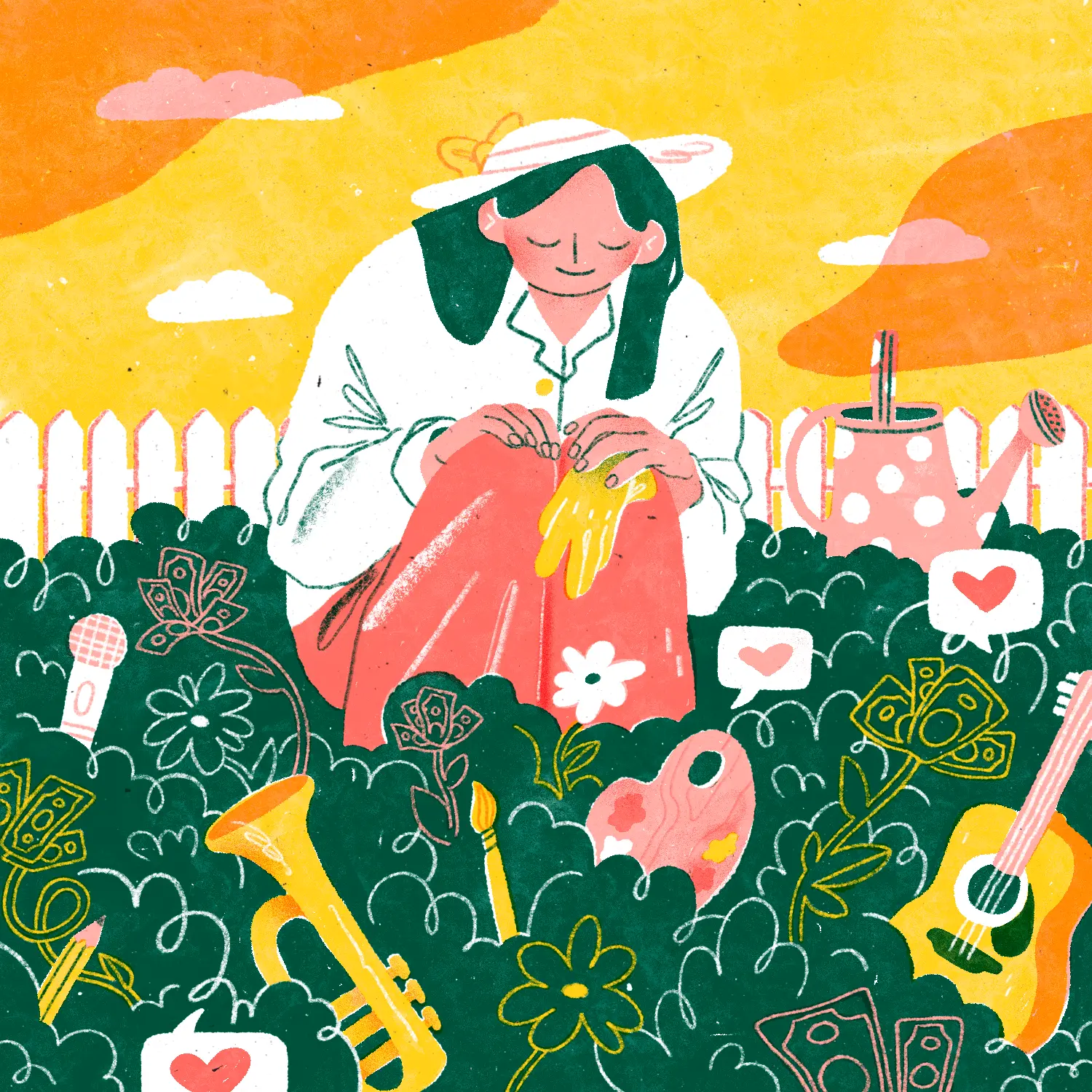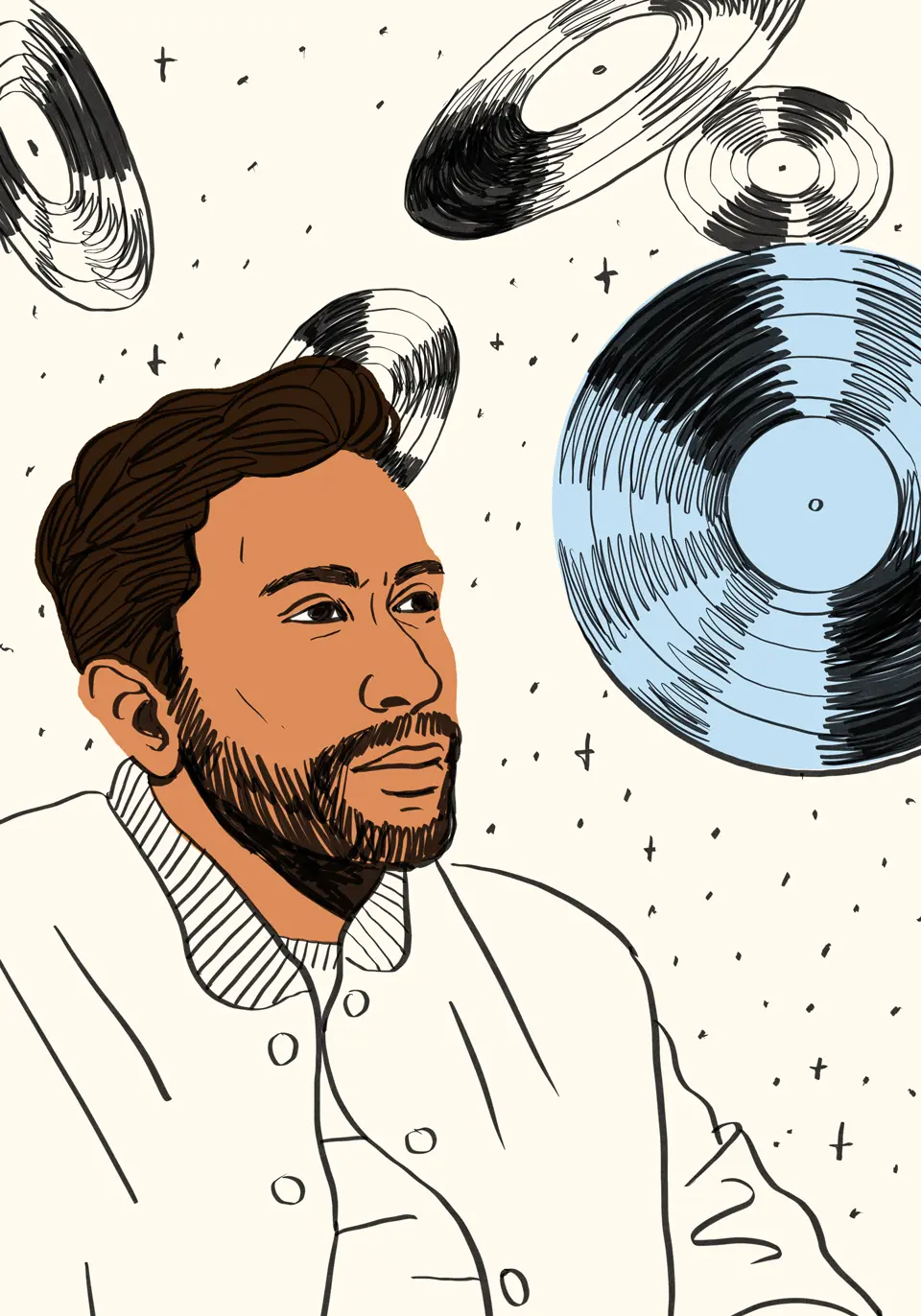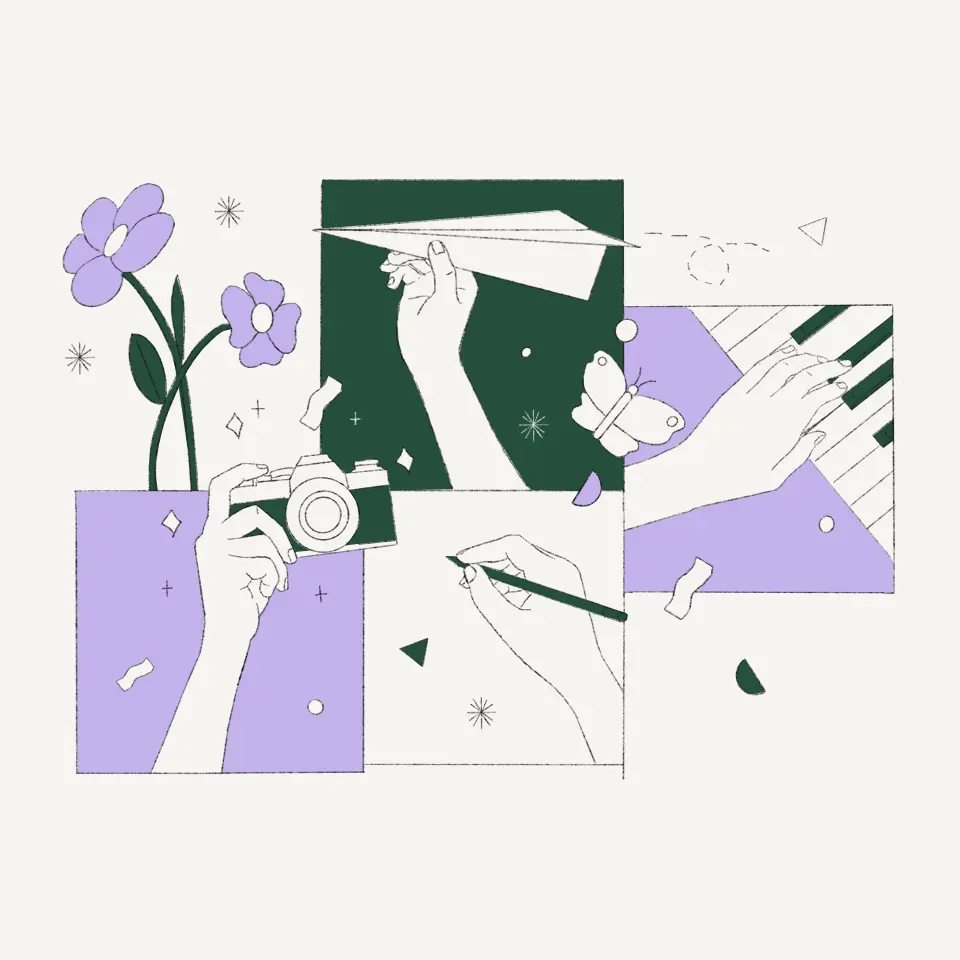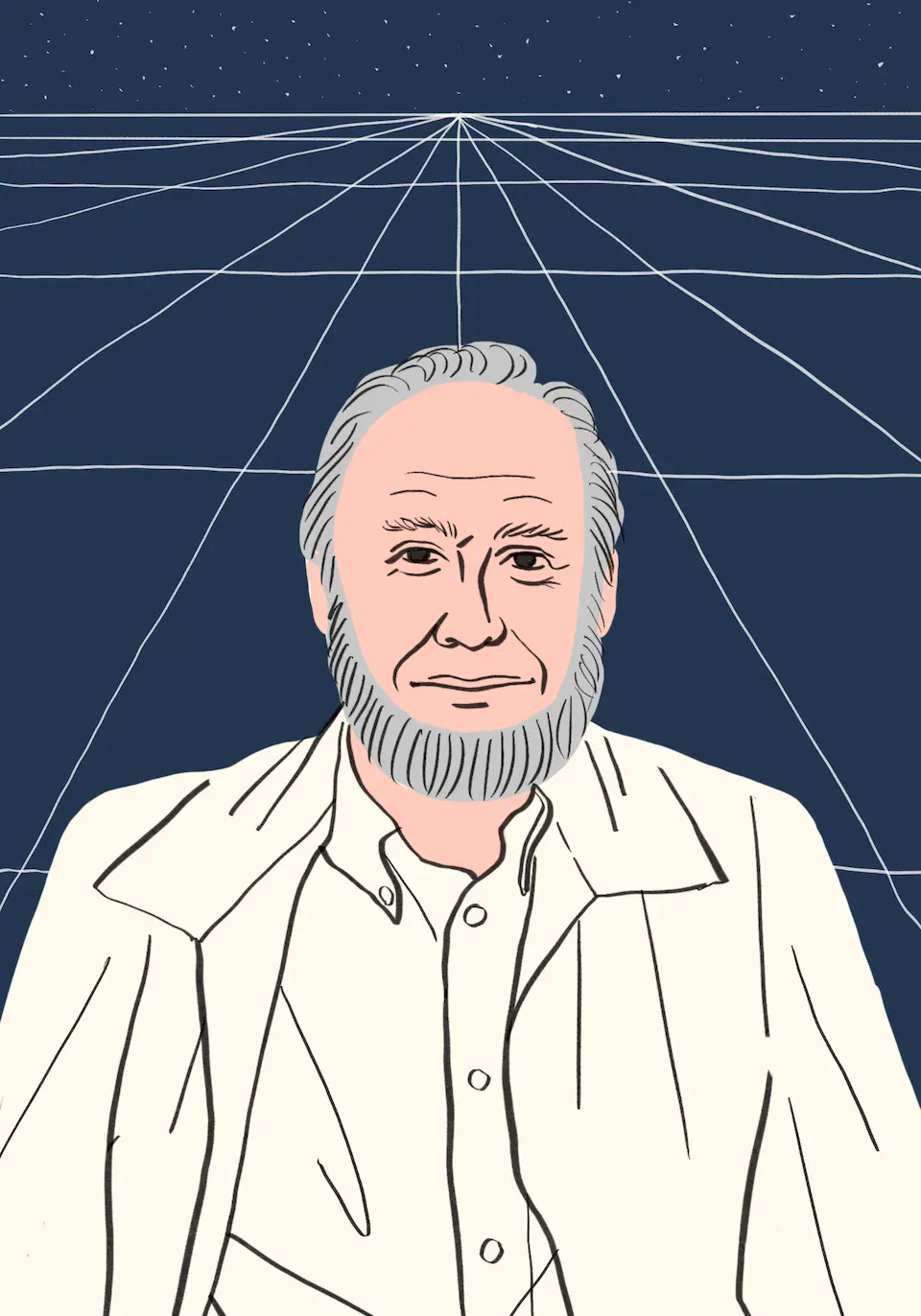
Aaron Mahnke on growing Lore from podcast to production company
Published on July 05, 2022
If you’ve been thinking about starting your own podcast, one of your first questions might be: What do my listeners want to hear?
But trying to read the minds of your target audience can put you on the path to burnout. Guessing what others want is exhausting. Exploring what gives you joy is where the action is. If you want to attract your first 1,000 True Fans, experts like Kevin Kelly, Li Jin, and Adam Davidson all advise the same thing: focus on what you want to create and the stories only you can tell.
As the creator of Lore, an award-winning podcast that explores the frightening history behind folklore, Aaron Mahnke knows exactly how it feels to start from scratch, using fascination as the seed of a new venture.
For seven years, he’s turned his passion for telling tales of haunted places, creepy people, and unsolved murders into a podcast that’s attracted millions of listeners, and was named one of the best podcasts of 2015 and 2016 by Apple. In 2017, Mahnke adapted Lore as an Amazon Prime TV series, and eventually launched his audio production company, Grim & Mild Entertainment.
Before he became a podcaster, Mahnke made his living as a freelance graphic designer. He didn’t have any experience in audio production or narration, but what he did have was an unquenchable curiosity about stories from the freaky fringes of history.
“I have memories of buying a collection of unusual true history stories when I was in fifth grade,” he recalls. “Things like a farmer who steps into a field and disappears right before his family's eyes.”
Then as a teenager, cult TV hits like Unsolved Mysteries and The X-Files continued to feed his appetite for the supernatural and paranormal.
“People want to believe that nailing down your passion and your purpose is a super obvious thing, but in my case, it's been a lot of retrospective realization,” he says. “Looking back, I thought: Wow, I guess I have been a writer who's been interested in weird history for decades.”
Guessing what others want is exhausting. Exploring what gives you joy is where the action is.
When you’re getting started as a creator, identifying your passion is often easier than finding the fans who’ll support it. A recent Patreon survey revealed that creators earn only 41% of their income from the platform, while the other 59% comes from a mix of touring, teaching, and brand partnerships. It’s no wonder many have begun to question how realistic it is to make a living as a creator alone.
So how do creators like Mahnke manage to make it happen? We spoke with him to find out how he grew from solo podcaster to founder of a full-fledged production company creating shows such as the recent breakout hit, Bridgewater.
Where did your passion for storytelling come from?
In the few years leading up to launching Lore, I was writing fiction in the supernatural thriller space—not as good as Stephen King, but in that shadow. The nonfiction stuff came in when I wanted to find a way to promote my books. I thought: a lot of these stories I'm writing are inspired by historical events—why not write up a few essays about these historical events and give them away for free?
Then I realized I could just narrate what I’d written, and treat it like an audio book. On the first story, the audio quality was horrible, so I put in some background music to soften the blow to people's ears. It just kind of took off from there. That was when I went from the idea of giving people a zip folder full of MP3s to realizing that this technology called podcasting was perfectly primed for what I wanted to do.
When you pivoted from the printed word to audio narration, how did you learn those new skills?
I knew I wanted to speak clearly. History can be a little dry, so I wanted to make sure there was some drama in there. I'm sort of making it up as I go along—adding in dramatic pauses, changing my tone, my speed. If you listen to the first episode and then listen to [episode #] 199 that came out this week, there's a huge difference in my presentation as a narrator. It's just seven years of experience and learning what works, getting feedback.
How did you make the transition from freelance graphic designer to podcast creator?
When I launched the show and things started to take off, I realized that if I could build the bridge over the river with the audio work, when that bridge was completed, I could shut down the other bridge that was the graphic design.
It was about four months into releasing episodes that the show was big enough that I could get paid sponsors and those paychecks took the place of my design paychecks. I was able to support the family that way. My work day was ready and waiting for Lore instead of design clients.
“I went from the idea of giving people a zip folder full of MP3s to realizing that podcasting was perfectly primed for what I wanted to do.”
How did you attract your first 1,000 True Fans to Lore?
Word of mouth is all I've ever relied on. What makes the show grow is when a listener hears an episode and they say, “That was so amazing! I have a friend or a family member I know is going to connect perfectly with this, because we share the same interests. I’m going to take time out of my day to tell them, ‘You have to listen to this podcast.’”
That word of mouth is how you grow shows because now you've got these friends who trust each other and one of them says to the other, “You got to check it out.” That means more than me, a stranger on the Internet, shouting “Try my thing!”
In those early days when the word of mouth was exploding, the audio quality was not good. I was still learning as a narrator. It was rough around the edges. What brought people in was the quality of the story being told. People were able to listen past the sound quality, the production mistakes I was making. They caught on with the story, and that was what propelled them.
You can't buy yourself an audience by buying a better mic, you know? It doesn't work that way. There's no magic bullet. If you want to get people talking at the water cooler, you got to give them something to talk about.
How does your team work together to develop the episodes?Once a year, my team and I have a writers room. We get together for a couple of days. Everybody comes with a list of potential show ideas they've been gathering. They pitch them to the rest of us and the team is there to provide feedback. Then, when it's all said and done, I'm sort of the judge up on the bench. I decide the fate of these topics. Sometimes, if it doesn't feel right, I can tell you what would make it feel right and tweak their pitch to make it fit the show.
The goal is to walk out of writers room with roughly 30 topics. We publish every other week. Most years, that adds up to 28. We map them out and assign topics to dates on the schedule and then we research and try to get as quickly as we can through the list.
My researchers usually hand me an outline of anywhere from 15 to 25 pages long. Usually I read my outlines on Friday, spend the weekend marinating, then Monday morning, I sit down and I write the whole episode. Done by about two or three in the afternoon with a break for lunch and a workout and team meeting with my crew.
I record as I go. I write the introduction, stand up, go in the booth, hit record, then come back and repeat that for every piece of the episode. All the while, the laptop in the booth is saving to Dropbox over here.
“Word of mouth is all I've ever relied on... If you want to get people talking at the water cooler, you got to give them something to talk about.”
How did your creative process evolve when you began leading a production team?
Over the years, I’ve handed off more pieces of the process to other people. I used to do everything from finding and researching the topic to making notes and an outline, then writing. At this point, I still write and record it because it has to be my voice. I still do the audio production just because it's a nice break from making the words to clicking and dragging timelines. I'm also incredibly picky about how the music lines up with the pacing of my speech. I play with that stuff too.
Just before lockdown in 2020, I decided we're going to make a whole production company. Now we're a team of eight people: five full timers, three who work on contracts. I think the key to learning to delegate is to do it slowly. Don't go from solo entrepreneur to giving all the tasks away all at once.
For me, it was baby steps. I let people do the research, and later on, I let people do writing. Tomorrow, I'm going to record an episode of Grim & Mild Presents, which is my narration but I'm not doing the research or planning the episodes. I don't even write the scripts.
How have the past two years changed the way your team works together?
Two years ago, I would have said, we're gonna benefit from collaborating in real time—sticky notes on the walls and all that stuff—but honestly, one thing I've learned is that everybody processes stuff differently. They collaborate differently. They communicate differently.
I am an introvert. If I spent a lot of time around other people, I feel emotionally and sometimes physically drained. I feel significantly less drain from Zoom calls. I think I could do more creative meetings virtually honestly. I like working from my home office. I can go out of the kitchen and make coffee if I want. There are benefits to being here by myself.
So even if the team was all local and working in the office together, I probably wouldn't be in there with them, just because I want to lock myself away in the quiet space. Some of the virtual tools have allowed us to lean into who we are as creators. I think the team’s happier that way.



